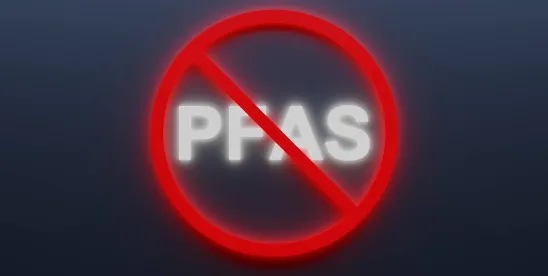European Union
PFHxA Restriction: The European Commission has introduced new restrictions on undecafluorohexanoic acid (PFHxA), a substance that is a part of the PFAS family, and related substances under the REACH Regulation. This applies to products where PFHxA poses significant risks and safer alternatives exist. Affected products include consumer textiles, food packaging, cosmetics, and certain firefighting foams. However, its use in semiconductors, batteries, and green hydrogen fuel cells remains exempted. The restriction will take effect 20 days after its publication, with transitional periods of up to five years to allow for the adoption of safer alternatives.
Universal PFAS Restrictions: In September, The European Chemicals Agency’s (ECHA) technical committees RAC and SEAC discussed the EU-wide proposal to restrict PFAS in the following sectors: petroleum and mining, textiles, upholstery, leather, apparel, carpets, and food contact materials and packaging. They provisionally concluded the evaluation of the petroleum and mining sector, with discussions on textiles, upholstery, leather, and food contact materials continuing in future meetings.
RAC also agreed to revise how PFAS emissions are calculated across sectors, with a focus on waste stages like disposal and incineration. The updated approach distinguishes between solid PFAS particle emissions and those that leach from materials, due to differing environmental concerns between fluoropolymer particles and non-polymeric PFAS. The committees announced that in November, they will evaluate construction products, followed by fluorinated gases, transport, and energy sectors in future meetings.
According to a document published by ECHA on 2 October, the evaluation of the universal PFAS restriction proposal will keep the agency occupied until at least 2025. This can be inferred from the table in the document, which outlines the current status of the evaluation and the committees’ upcoming plans for assessing the potential impacts of the restriction across various sectors that use PFAS. Meanwhile, the five dossier submitters are still working on revising the restriction dossier based on the consultation responses, but there is currently no information regarding the timeline.
The Draghi Report: Former European Central Bank (ECB) President Mario Draghi presented a report earlier this month, commissioned by Ursula von der Leyen, outlining strategies to enhance Europe’s competitiveness. The report warns against rushing to ban substances like PFAS, which are essential for producing clean technologies such as batteries and electrolysers, where no viable alternatives are currently available.
The non-governmental organization, Health and Environment Alliance (Heal), labelled concerns about PFAS bans in the Draghi report as misleading, noting that the EU’s proposal already includes exemptions and overlooks the significant health and environmental costs associated with these substances. Heal emphasizes that the focus should be on the serious consequences of PFAS rather than just economic implications.
EU Member States
France: On September 4, several environmental groups and local residents filed a legal challenge against the authorization of a new reactor project, at risk of PFAS emissions, in favour of a chemical manufacturer, following a recent victory against another manufacturer, whose production project was halted by the administrative court of Lyon. Both companies are currently facing legal scrutiny from local authorities, including the metropolis of Lyon, which has called for an investigation into their role in nearby water contamination.
Separately, the Lyon Administrative Court rejected an attempt to suspend a different chemical company’s project to produce PFAS-free polymers. The court ruled that the project posed no significant environmental risks, despite concerns from environmental groups about potential long-term PFAS emissions.
Germany: During a chemical industry conference on September 12, Chancellor Olaf Scholz expressed opposition to a blanket ban on all PFAS substances. He emphasized the need for accelerated research into viable alternatives.





 />i
/>i
